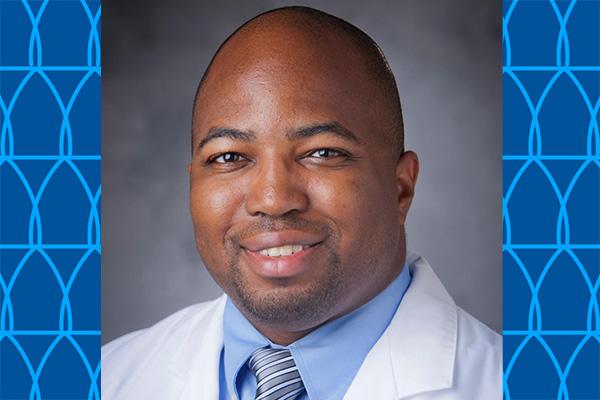
In this month’s EDI Spotlight, Lance Okeke MD, MPH, associate professor of medicine, shares how he is preparing future clinicians and scientists interested in improving the lives of people living with HIV. He’s doing this work through his leadership in an innovative initiative for fellows and a program designed to increase interest in HIV science careers for students at Historically Black Colleges and Universities (HBCUs). He also discusses his inspiration for engaging in initiatives focused on promoting diversity, equity, and inclusion, including current initiatives in his own division.
You are vice chief for diversity, equity and inclusion with Duke Infectious Diseases. What are some of the initiatives that the division has developed to address health disparities in infectious diseases?
Many of our division’s faculty are working on DEI-related research initiatives, from racial and ethnic determinants of invasive staph aureus-related disease to demographic correlates of hospital-acquired infections. One of our really innovative initiatives is our Duke HIV Clinical Practice Fellowship QI initiative. In conjunction with our fellowship program leadership (Eileen Maziarz, MD, and Molly Hillenbrand, MD), we have created an initiative that positions groups of fellows to rigorously evaluate aspects of clinical care that we provide to the over 2,000 persons living with HIV in our clinic practice. Each cohort of senior fellows is divided into three groups of three to four fellows, and each group chooses a clinical topic within HIV clinical care to build a longitudinal quality improvement (QI) project on. All initiatives are informed by contemporary clinical practice data, and fellows are mandated to present data on their relevant clinical practice based on race, ethnicity, and sex at birth, and when available, gender identity and sexual orientation. The program is now in its third year and has produced really cool practice-based innovations in everything from cervical cancer screening to hepatitis B screening and vaccination, to streamlining collection of sexual orientation and gender identity (SOGI) data within our clinical practice.
How did you first become interested in work related to equity, diversity, and inclusion?
My experience as a Black cisgender man, a first-generation Nigerian American, and an HBCU graduate has played a major role in my interest in EDI work. My own experience has made me acutely aware that there are so many versions of this great American story that aren’t being told often enough. I think of the intrinsic value added to everything that we do if we do a better job incorporating people from diverse perspectives into how we make decisions, how we shape our mission and vision. To me, the evidence of this added value is unequivocal, especially in a profession like health care, one that is predicated on the mandate that we provide our services equitably to all people.
You are the founding director of the Evidence2Practice initiative, an innovative program that promotes careers in HIV science to students at historically Black colleges and universities (HBCUs) by highlighting HIV-related implementation research. Tell us more about the program. What do you hope the impact of the program will be?
Evidence2Practice (E2P), is an HBCU outreach initiative sponsored by the Duke Center for AIDS Research (through the CFAR Diversity, Equity and Inclusion Pathway Initiative). E2P features a three-day workshop that introduces groups of HBCU students to their local HIV epidemiologist, contemporary HIV prevention modalities, health services research, and implementation science. We also make the case of why the end of the U.S. HIV epidemic is within reach in their lifetimes, and why this makes entering a career in HIV/infectious diseases now particularly exciting. To better position us to make this case, all workshops are held on campus in person.
Since November 2021, we have held workshops at 16 HBCU campuses in 6 states, reaching over 200 HBCU students in the process. We have forged critical collaborative relationships with health professions offices on many of these campuses. With the help of our department’s residency program leadership, we have also involved internal medicine house staff to co-moderate E2P workshops on several HBCU campuses across the state. Our hope is to promote careers in HIV science, public health, and infectious diseases overall as part of this work. We also hope to leverage E2P’s rapidly growing informal mentoring network as an asset towards Duke’s efforts to diversify its clinical and research workforce.
What passions or hobbies do you have outside of work?
I love spending as much time with my family as possible. I love playing and watching soccer, a love a gained from my childhood in Nigeria. It’s really cool to see my kids gain that same affinity for the sport as well. We try to get to all the major tournaments around the world, including the most recent European Championships. I’m also into everything Nigerian culture (movies, music, cuisine). We also enjoy short trips in exploration of this wonderful state of North Carolina we live in.